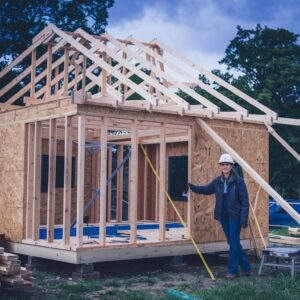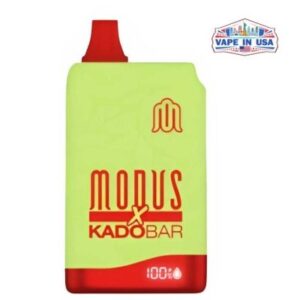The world of real estate investment has been revolutionized by blockchain technology, especially with the rise of real estate tokenization. Historically, property investments have been dominated by high capital requirements, limiting participation to wealthy investors and institutional players. However, real estate tokenization is breaking down these barriers by offering fractional ownership, making it possible for smaller investors to participate in high-value real estate opportunities. By leveraging blockchain technology, real estate assets can now be divided into smaller, tradable units, providing easier access, increased liquidity, and greater transparency.
In this article, we will explore how real estate tokenization is changing the way people invest in properties, the benefits it brings to both investors and property owners, and how blockchain ensures security and efficiency in the process. We’ll also discuss how real estate tokenization platforms can be developed, offering you a guide to launching your own platform for fractional real estate ownership.
What Is Real Estate Tokenization?
Real estate tokenization is the process of converting physical property assets into digital tokens on a blockchain. These tokens represent ownership shares of a property, which can then be bought, sold, or traded. The use of blockchain ensures that these transactions are transparent, secure, and immutable. With tokenization, real estate can be fractionally owned, meaning multiple investors can own a portion of the property, lowering the entry barrier for property investments.
By tokenizing real estate, properties that were once only accessible to the wealthy can now be owned by a diverse range of investors. This model offers several advantages, including increased liquidity, reduced transaction costs, and the ability to easily trade property shares on blockchain-based platforms.
Key Benefits of Real Estate Tokenization:
-
Fractional Ownership: Tokenization allows for smaller investments in high-value properties, making real estate more accessible to a broader audience.
-
Liquidity: Tokenized real estate can be traded on blockchain platforms, enabling investors to buy and sell property shares quickly.
-
Reduced Transaction Costs: By eliminating intermediaries, such as brokers and lawyers, real estate tokenization reduces the cost of property transactions.
-
Global Market Access: Blockchain allows for international participation in real estate investments, offering global access to tokenized properties.
The Role of Smart Contracts and NFTs in Real Estate Tokenization
Smart contracts and NFTs play a pivotal role in the real estate tokenization process, making it more efficient, secure, and transparent.
Smart Contracts: Automating Real Estate Transactions
Smart contracts are self-executing contracts where the terms of the agreement are written directly into code. In the context of real estate tokenization, smart contracts automatically manage transactions such as ownership transfers, rental payments, and profit distributions, eliminating the need for intermediaries and minimizing human error. These contracts are stored on the blockchain, ensuring that they are secure, transparent, and immutable.
For example, when a property is tokenized, the smart contract will automatically transfer ownership once payment is made, without the need for a lawyer or broker. Furthermore, smart contracts can automate rent distribution to token holders, making real estate tokenization even more attractive for passive investors.
NFTs: Representing Real Estate Ownership
Non-fungible tokens (NFTs) are digital assets that represent unique items, in this case, real estate ownership. NFTs can be used to tokenize individual properties or fractional shares of properties, ensuring clear and secure ownership on the blockchain. Each NFT associated with real estate tokenization represents a unique portion of the property, and all transactions involving these NFTs are recorded on the blockchain, providing a transparent and traceable history of ownership.
NFTs also enhance liquidity, as these tokens can be traded on blockchain-based marketplaces. Investors can sell their fractional ownership shares easily, which increases the attractiveness of real estate investments that are typically illiquid.
The Process of Real Estate Tokenization for Fractional Ownership
Tokenizing real estate involves several steps, starting from property selection to the creation and sale of tokens to investors. Here’s a simplified breakdown of how real estate tokenization works for fractional ownership:
1. Property Selection and Legal Structuring
The process begins by selecting the property to be tokenized. This could be a residential, commercial, or industrial property. Next, a legal structure, such as a Special Purpose Vehicle (SPV), is set up to hold the property on behalf of the token holders. The SPV ensures that the property is legally protected and the tokenization process is compliant with all regulations.
2. Property Valuation
Before tokenizing a property, it is essential to conduct a valuation to determine its market price. This valuation helps set the price for each token and ensures that the fractional ownership structure is accurate. The valuation can be done through professional appraisers or automated tools.
3. Token Creation
Once the property is valued, digital tokens are created to represent ownership shares. These tokens are issued on a blockchain, providing transparency, security, and immutability. Smart contracts automate the process of token creation and ownership transfer.
4. Issuance and Sale of Tokens
The next step is the issuance and sale of tokens. Investors can purchase tokens through an Initial Token Offering (ITO) or Security Token Offering (STO). These tokens can be bought using either fiat currency or cryptocurrency. The sale of tokens allows for fractional ownership, making real estate investment more accessible to a wider audience.
5. Secondary Market Trading
After tokens are issued, they can be traded on a secondary market. This increases liquidity, allowing investors to buy and sell their tokenized real estate assets. The ability to trade tokens on blockchain platforms makes real estate tokenization a much more flexible investment vehicle compared to traditional real estate.
6. Income Distribution
As the property generates income (e.g., rental payments), smart contracts automatically distribute the profits to token holders based on their ownership percentage. This provides a streamlined, hands-off income stream for investors.
The Importance of Blockchain in Ensuring Security
Blockchain technology ensures that real estate tokenization is secure, transparent, and trustworthy. Here’s how blockchain guarantees security:
1. Immutability and Transparency
Once a transaction is recorded on the blockchain, it cannot be altered or deleted. This immutability ensures that ownership records are secure, and all property transactions are permanently logged, reducing the risk of fraud.
2. Decentralization
Blockchain operates on a decentralized network, meaning no single entity controls the data. This distributed system increases security by making it difficult for malicious actors to alter the blockchain.
3. Cryptographic Security
Each transaction on the blockchain is encrypted, ensuring that only authorized parties can access the data. In real estate tokenization, private keys protect token holders, making it virtually impossible for unauthorized individuals to tamper with ownership records.
4. Reduced Risk of Fraud
By using blockchain, real estate tokenization minimizes the need for intermediaries, such as brokers or notaries, reducing the potential for fraud. All transactions are verified by the blockchain network, ensuring that they are authentic and trustworthy.
The Role of Tokenization in Streamlining Property Management
In addition to enabling fractional ownership, real estate tokenization also streamlines property management through the use of smart contracts. These contracts can automate various tasks, reducing administrative costs and increasing efficiency.
1. Rent Collection and Payments
Smart contracts can automate the collection of rent payments and distribute the funds directly to token holders. This ensures timely payments, reduces human error, and eliminates the need for intermediaries.
2. Lease Agreements
Lease agreements can also be automated through smart contracts, making the process more efficient and reducing paperwork. Once a contract is executed, the terms are automatically enforced, ensuring that both parties adhere to the agreement.
3. Property Maintenance and Upgrades
Smart contracts can also be used to manage property maintenance and upgrades. Token holders can vote on decisions regarding renovations or repairs, ensuring that property management is transparent and democratic.
Real Estate Tokenization: Full vs Fractional Ownership
When considering real estate tokenization, it’s important to understand the difference between full ownership and fractional ownership. Each model offers unique advantages depending on the investor’s goals.
Full Ownership Tokenization
In full ownership tokenization, a single investor owns the entire property, making all decisions regarding its management, sale, or upgrades. This model requires a larger initial capital investment and typically offers a long-term investment strategy.
Fractional Ownership Tokenization
Fractional ownership, on the other hand, divides the property into smaller shares that can be purchased by multiple investors. This model lowers the capital requirements and provides greater liquidity, making it more accessible to a broader range of investors.
Launching Your Own Real Estate Tokenization Platform
If you’re looking to enter the real estate tokenization market, launching your own platform can be a lucrative opportunity. At IdeaUsher, we specialize in developing secure, scalable, and user-friendly real estate tokenization platforms. Here’s how we can help:
1. Property Selection and Legal Structuring
We assist with selecting properties for tokenization, ensuring they are profitable and legally sound. We also help set up the necessary legal structures to support fractional ownership.
2. Blockchain and Smart Contract Integration
Our team will guide you in selecting the best blockchain platform and integrate smart contracts to automate the tokenization process.
3. Platform Development
We’ll build a secure, intuitive platform for investors to buy, sell, and trade tokenized real estate. Our platform will offer features like wallet integration, real-time tracking, and secondary market trading.
4. Post-Launch Support
We provide ongoing maintenance, updates, and support to ensure your platform remains secure, compliant, and user-friendly.
Conclusion: The Future of Real Estate Investment
Real estate tokenization is revolutionizing the property investment landscape. By using blockchain technology, it allows for fractional ownership, increases liquidity, reduces transaction costs, and opens the door to global investors. With the help of smart contracts and NFTs, real estate tokenization creates a more secure and transparent investment environment. Whether you’re an investor or a developer, embracing real estate tokenization offers numerous opportunities for growth, diversification, and profit.
If you’re ready to launch your own real estate tokenization platform, IdeaUsher is here to help you turn your vision into reality. With our expertise in blockchain technology and real estate tokenization, we can help you create a platform that stands out in the growing market. Let’s work together to unlock the future of real estate investment.



